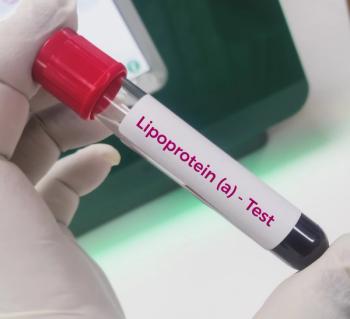
Steroids Increase Cardiovascular Risks in Inflammatory Disease Patients
While glucocorticoids are widely used to reduce inflammation in patients with many inflammatory diseases, doctors don’t know whether a low to moderate glucocorticoid dose increases cardiovascular risk.
While glucocorticoids are widely used to reduce inflammation in patients with many inflammatory diseases, doctors don’t know whether low to moderate glucocorticoid dose increases cardiovascular risk.
As a result, researchers at the University of Leeds in Leeds, UK, set out to quantify glucocorticoid dose-dependent cardiovascular risk in people with six immune-mediated inflammatory diseases in a new study published in
The researchers conducted a population-based cohort analysis of medical records from 389 primary care practices contributing data to the United Kingdom Clinical Practice Research Datalink (CPRD) from 1998 to 2017.
They looked at the records for nearly 88,000 patients with giant cell arteritis and/or polymyalgia rheumatica, inflammatory bowel disease, rheumatoid arthritis, systemic lupus erythematosus, and/or vasculitiswho had no prior cardiovascular disease (CVD).
Incident CVD occurred in 15% of patients, including 6,013 who had atrial fibrillation, 7,727 who experienced heart failure, and 2,809 who had acute myocardial infarction events.
One-year cumulative risks of all-cause CVD increased from 1.4% in periods of non-use to 8.9% for a daily prednisolone-equivalent dose of greater than 5 mg. Five-year cumulative risks increased from 7% for periods of non-use to 28% with the daily dose greater than 5 mg. Compared to periods of non-glucocorticoid use, those with greater than 5 mg. daily prednisolone-equivalent dose had increased all-cause CVD risk, ranging from 1.52 for polymyalgia rheumatica and/or giant cell arteritis to 2.82 for systemic lupus erythematosus.
“Increased dose-dependent risk ratios were found regardless of disease activity level and for all type-specific CVDs,” the researchers wrote. “Individuals receiving steroids have an increased risk of developing a broad spectrum of fatal and nonfatal CVDs and that this risk increases with the dose of steroids and with the duration of steroid treatment.”
Experts previously believed that less than 5 mg. of prednisolone was safe over long term, the researchers wrote, but even at this “low dose,” patients with immune-mediated inflammatory diseases have a doubling of their underlying risk of CVD.
They believe that all patients requiring long-term steroid treatment should be prescribed the lowest effective steroid dose and have a personalized CVD risk prevention plan that takes into account current and prior steroid use.
“New treatment approaches that avoid the need for long-term steroid treatment and have better cardiovascular safety profile are required for immune-mediated inflammatory diseases,” the researchers wrote.
Newsletter
Get the latest industry news, event updates, and more from Managed healthcare Executive.























